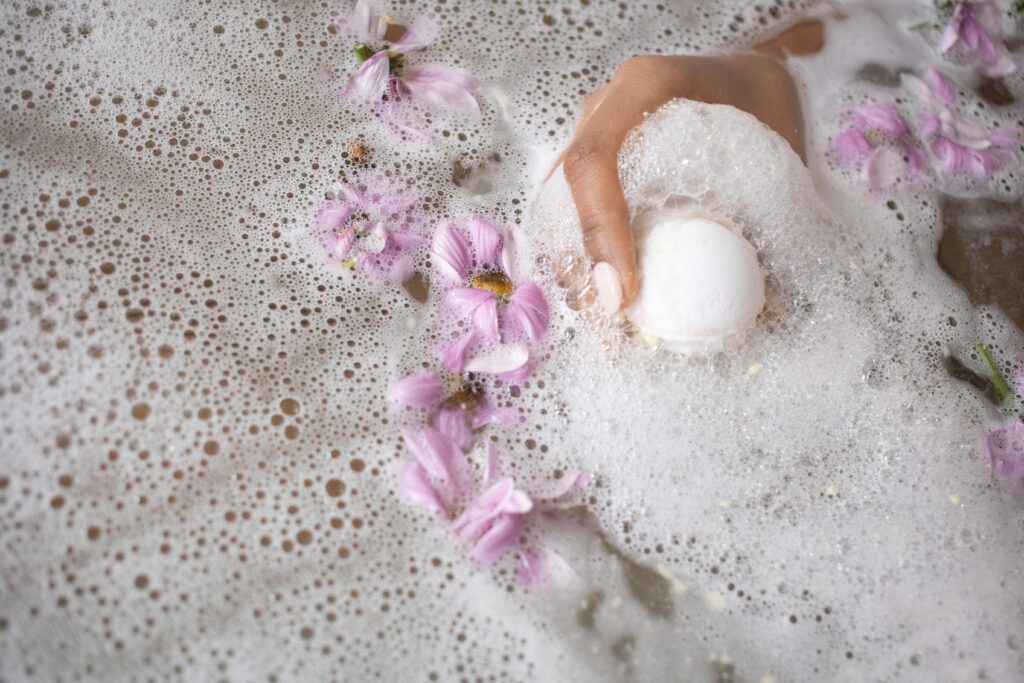The luxury of handcrafted soaps ; elevating your daily routine

In today’s fast – paced world , we often seek little moments of luxury to brighten our day.
Luxurious Appeal of Handcrafted Soaps
In a sea of mass-produced personal care products, handcrafted soaps evoke luxury and indulgence. What is it, though, about handmade soaps that makes them really special? Let us delve into the luxurious world of handcrafted soaps and find out why they are much more than just a pampering treat.
Why Handcrafted Soaps Shine ?
Handmade soaps shine in a world full of mass-produced bars because they are crafted to pay great attention to the process and very often result from years of perfecting an artisan’s skills. In contrast to their mass-produced brethren, handcrafted soaps are typically made in small batches, which secures quality and difference.
The Art of Crafting and handcrafting.
Quality ingredients like natural oils, butters, and essential oils are combined in the making of handcrafted soaps. Ingredients are selected for their skin values and the ability to formulate rich and luxurious lathers. It takes months of techniques and craftspersonship, needing a person to put together these fine ingredients. Every piece of soap expresses artistry in intricate designs and patterns, portraying the creativity and experience of the maker.
Beyond Beauty Benefits.
Handmade soaps bring much more to the table than their good looks. One of the good things about using natural ingredients is that such soaps may turn out to be much milder for skins with sensitivities or allergies. For instance, most handcrafted soaps are infused with essential oils that have soothing, moisturizing, and healing properties. Common ingredients in handmade soaps are shea butter, coconut oil, and olive oil, all of which assist in nourishing and hydrating the skin.
Eco-Friendly Luxury
Yet another luxury of handmade soaps is that they are eco-friendly. Most artisans take care of the sustainability aspect by using natural, organic ingredients and avoiding synthetic chemicals while minimizing waste. Most of the packaging is recyclable or biodegradable, so choosing handmade soaps means treating not just your skin but the environment as well.
A Personal Touch
Handmade soaps often capture a touch that is simply very elusive in mass-produced pieces. Due to the usually small batches in which they are made, every single bar could be attuned to specific needs or preferences. This may manifest in unique scents, colors, and even specially handmade designs. Thereafter, purchasing handmade soaps can also be a way to assist local crafters of these goods and small businesses associated with them, which gives more meaning to your buying luxury.
Embracing Luxury
There are quite easy ways to fit handcrafted soaps into everyday life. Handmade bars provide a luxurious feel to the skin and rich lather, not forgetting excellent fragrances that make one feel pampered. Be it using it for yourself or as a gift for that special someone in your life; handcrafted soap comes beautifully and beneficially packaged as that touch of luxury.
Conclusion
Handmade soaps do much more than just function as a medium for cleaning— they mark the celebration of art, betterment in quality, and sustainability. You treat yourself to a personal luxury when you use handmade soaps while upholding the tradition of craft and care. The next time that you need a new soap, reach out for that handmade bar. A small act it is to bring elegance and pampering into everyday lif
FAQs
- What is the difference of handmade soap to commercial soap?
Handmade soaps are produced in small quantities using techniques handed down from generation to generation, are nearly 100% natural in ingredient composition, and go through significantly less processing. This is in contrast to mass-produced soaps that may have a formulation containing synthetic additives or preservatives added in the ingredients, while handmade soaps go through processes containing quality oils, superior essential oils, and botanicals, which may cause a product to be milder on the skin and eco-friendly.
- Do handmade soaps work on all types of skin?
Their concoctions take care of specific skin issues, whether it be dryness, sensitivity, or even acne.
The natural ingredients in handmade soaps are far less irritating in caparison to synthetically
included ingredients in commercially produced soaps. if you have specific allergy or sensitivities it’s
always best to check the ingredients. Yes, most handmade soaps are created to different types of
skins.
- Storing Your Handmade Soap to Make it Last
Keep handmade soaps away from direct contact with water and in a cool, dry area. After use, let it drain well and dry on a well-draining soap dish. Proper storage will avoid your soaps turning mushy, hence making it last longer.
- Is this handmade soap good for the face and body?
Face This part might be a little more sensitive than the other skin areas in your body so, make sure to have a soap that says it’s safe to use on your face or, in the first place, doesn’t have any harsh ingredients. If ever there’s a thought in your mind that second-guesses that—best do that little patch test. Most handmade soaps should be mild enough for both body and face wash. Since your facial
if you have any queries or concerns regarding the content of this page feel free to contact us.

